Directions (1-5): Read each sentence to find out whether there is any error in it. The error, if any, will be in one part of the sentence. Mark the number of that part with error as your answer. If there is no error, mark (e). (Ignore errors of punctuation, if any.)
Q1. He grow up the way (a)/ many young children grow up-(b)/ pampered, adored (c)/ and inwardly tortured. (d)/ No error (e)
(a) A
(b) B
(c) C
(d) D
(e) E
Q2. He pulled his lips together, (a)/ close his eyes (b)/ and I watched the first teardrop (c)/ fall down the side of his cheek. (d)/ No error (e)
(a) A
(b) B
(c) C
(d) D
(e) E
Q3. On Sunday, when his sons (a)/ Rob and Jon was home, (b)/ they all gathered (c)/ in the living room. (d)/ No error (e)
(a) A
(b) B
(c) C
(d) D
(e) E
Q4. The Audit committee of the Board (a)/ has been constituted (b)/ by the Board of Directors (c)/ as per the instructions of the Reserve Bank of India. (d)/ No error (e)
(a) A
(b) B
(c) C
(d) D
(e) E
Q5. Proper care was taken (a)/ for the maintenance of accounting records (b)/ as per accordance with (c)/ the provisions of applicable laws. (d)/ No error (e)
(a) A
(b) B
(c) C
(d) D
(e) E
Directions (6-10): Rearrange the following six sentences (A), (B), (C), (D), (E) and (F) in the proper sequence to form a meaningful paragraph; then answer the questions given below.
(A) The answer is to turn out medical/health personnel sufficiently, but not expensively, trained to handle routine complaints and to get villagers to pay adequate attention to elementary but crucial matters like cleanliness.
(B) The bulk of the population in poor countries who live in rural areas, are left untouched by all this and must rely on traditional healers.
(C) The present medical and health-care system, is urban-based, closely geared to drugs, hospitals and expensively trained apathetic doctors.
(D) Traditional healers, whom villagers trust, can be among these intermediate personnel.
(E) Some third world countries, including India, have launched or are preparing elaborate schemes of this nature.
(F) More complicated ailments can be referred to properly equipped centres in district, towns, cities and metropolises.
Q6. Which of the following should be the SECOND sentence after rearrangement?
(a)A
(b)B
(c) C
(d) D
(e) E
Q7. Which of the following should be the FIRST sentence after rearrangement?
(a)A
(b)B
(c) C
(d) D
(e) E
Q8. Which of the following should be the FIFTH sentence after rearrangement?
(a)F
(b)B
(c) C
(d) D
(e) E
Q9. Which of the following should be the SIXTH (LAST) sentence after rearrangement?
(a)A
(b)B
(c) C
(d) D
(e) E
Q10. Which of the following should be the FOURTH sentence after rearrangement?
(a) A
(b) B
(c) C
(d) D
(e) F
Directions (11-15) : In each of the following sentences, a part of the sentence has been given in bold. Below are given alternatives to the bold part which may improve the sentence. Choose the correct alternative. Wherever no improvement is needed, choose ‘No correction required’ or ‘No improvement’ as the answer.
Q11. We are happy to note that emission controls was created to reduce air pollution.
(a) emission controls were
(b) the uses of emission controls were
(c) emission controls had
(d) emission controls had to be
(e) No correction required
Q12. Although he was seen with a drug-peddler, he is not necessarily himself a drug-peddler.
(a) it is not necessary that he be himself a drug-peddler
(b) he is not necessary to be a drug-peddler himself
(c) he was not necessary to be himself a drug-peddler
(d) he is not necessarily a drug peddler himself
(e) No correction required
Q13. She intends to sell her furniture before she leaves.
(a) intends selling
(b) intend selling
(c) intends for selling
(d) intends to selling
(e) No correction required
Q14. We have already identified areas where landslides are possible and start evacuation of residents to safer locations.
(a) starting evacuation
(b) started evacuation
(c) have started evacuate
(d) start evacuating
(e) No correction required
Q15. The law that now stands abolished was a flawed and discriminatory peace of legislation.
(a) flaw and discrimination of peace of
(b) flawed and discriminating piece for
(c) flawing and discriminating peace of
(d) flawed and discriminatory piece of
(e) No correction required
Solutions
S1. Ans. (a)
Sol. A past tense should be used in the first part of the sentence to maintain the correct tense form.
S2. Ans. (b)
Sol. Use ‘closed’, not ‘close’. The past tense verb should be used throughout.
S3. Ans. (b)
Sol. As we are talking about two persons, joined by ‘and’, the plural verb ‘were’ should be used.
S4. Ans. (e)
Sol. No error.
S5. Ans. (c)
Sol. It should be either ‘as per the provisions of applicable laws’ or ‘in accordance with the provisions of applicable laws’
S6. Ans. (b)
Sol. The correct sequence is CBAFDE.
S7. Ans. (c)
Sol. The correct sequence is CBAFDE.
S8. Ans. (d)
Sol. The correct sequence is CBAFDE.
S9. Ans. (e)
Sol. The correct sequence is CBAFDE.
S10. Ans. (e)
Sol. The correct sequence is CBAFDE.
S11. Ans. (a)
Sol. Plural verb is required.
S12. Ans. (d)
Sol. In the given sentence, the adverb ‘necessarily’ placed as it modifies ‘himself’ which it is not supposed to do.
S13. Ans. (e)
Sol. After ‘intend’, an infinitive (‘to’) is more usual than a gerund (a verb ending in ‘ing’).
S14. Ans. (b)
Sol. Parallel construction demands ‘started’, not ‘start’ with ‘we have identified….’ Two sentences have been combined with ‘and’ here: (i) ‘we have identified…possible’ (ii) ‘(we have) started evacuation…locations’.
S15. Ans. (d)
Sol. ‘Piece’ and ‘peace’ are homophones. Piece means a part or portion of anything; peace is a state of quiet.


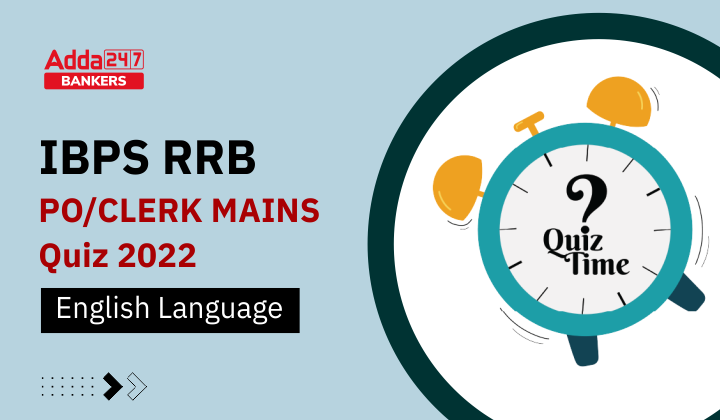
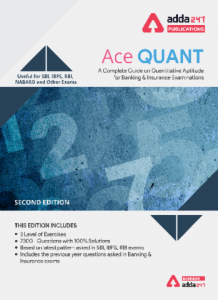

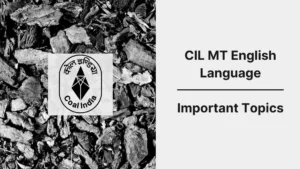 Important Topics for CIL MT English Lang...
Important Topics for CIL MT English Lang...
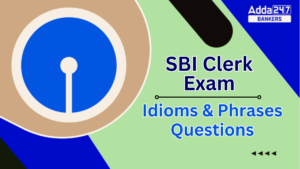 Idioms and Phrases Questions for SBI Cle...
Idioms and Phrases Questions for SBI Cle...
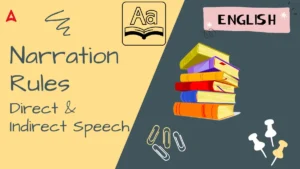 Narration Rules for Direct & Indirec...
Narration Rules for Direct & Indirec...







